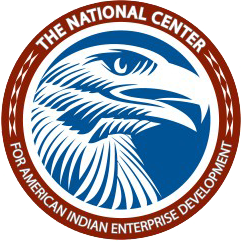The Ho-Chunk Nation owns and operates several Wisconsin casino properties which include hotels, restaurants and convenience stores. Recognizing the need to reinvest in their gaming properties to better serve the changing needs of their guests and to create tourism destinations, a $40-million, extensive renovation was undertaken of the Ho-Chunk Nation’s flagship casino and hotel property in the Wisconsin Dells. A primary goal was a “bigger, brighter gaming experience for guests,” according to tribal leaders.
Additions in the project included a new hotel main entrance and lobby, new hotel bar, new coffee house, a poker room and off-track betting area. As part of the renovation of the 162,000-square-foot casino, the layout of the casino floor also was redesigned, the non-smoking area of the casino was expanded, the bingo area was renovated and the buffet was enlarged.
The Ho-Chunk Gaming Wisconsin Dells renovation was a large-scale project with high-quality craftsmanship and a long-lasting impact on the client and its local community. It also involved a huge challenge which was overcome – the ability to work in a live facility while maintaining the schedule, quality and safety.
A 20-person crew from Mavid Construction was engaged on the project over an 18-month period. Its personnel installed drywall, a large amount of tile, complex ceiling systems/soffits and commercial flooring. Mavid Construction gave preference to Native tribal members for the work.
The tile work on the project was both extensive and spectacular in appearance. Approximately 40 different styles of tile were installed. Among the items tiled were floors, accent walls, the front of a buffet counter in the dining/restaurant area, and wrap-around columns.
The columns, which were roughly 20 feet high and wrapped in copper penny rounds, required the highest level of craftsmanship. Mavid Construction personnel worked on an aerial lift for the higher areas. When the columns were wrapped, installers had to make sure that they didn’t have any cut tile; everything had to be full sheets. Also, installing on a curved surface complicated the work.
The buffet counter had the artistic element of a wave on its front surface. Two different colors and types of tile expertly were put into place to form a wave pattern.
The ceiling systems and soffits were another area of superior craftsmanship, largely because all of the soffits were curved.
An extensive amount of precision track bending was required to achieve flawless curves on the radial soffits. Highly trained framers were necessary to complete the install. According to the project’s site superintendent, “There are not many folks out there that can do a ceiling like this. It’s almost like an art.”
To ensure the needed level of precision, the use of a highly technical positioning system, the Total Station, was required.
The primary challenge of this project was the fact that the casino remained operational throughout. Casino guests have a high standard for customer service and quality of experience, meaning that Mavid Construction personnel needed to be clean, organized and efficient on the worksite at all times. The facility is open 24 hours a day, 7 days a week, with more than 350 employees on each shift.
Using a temporary wall and safety measures, guests were able to enjoy the casino facilities while construction was actively taking place. Working in a live casino facility is extremely demanding. The ability of Mavid Construction personnel to successfully, and safely, complete their work cannot be understated.
The community and client were impacted in multiple ways through this project. Mavid Construction utilized and trained a local workforce with tribal members. This type of engagement often results in workers staying on with the company.
The redesign of the Dells location brought food and beverage services closer to the casino floor, successfully addressing feedback that the Ho-Chunk Nation had received from its customers.
From a financial standpoint, because the project was conducted entirely while the casino remained open, cash flows were not interrupted for the multi-million-dollar property of the Ho-Chunk Nation.

